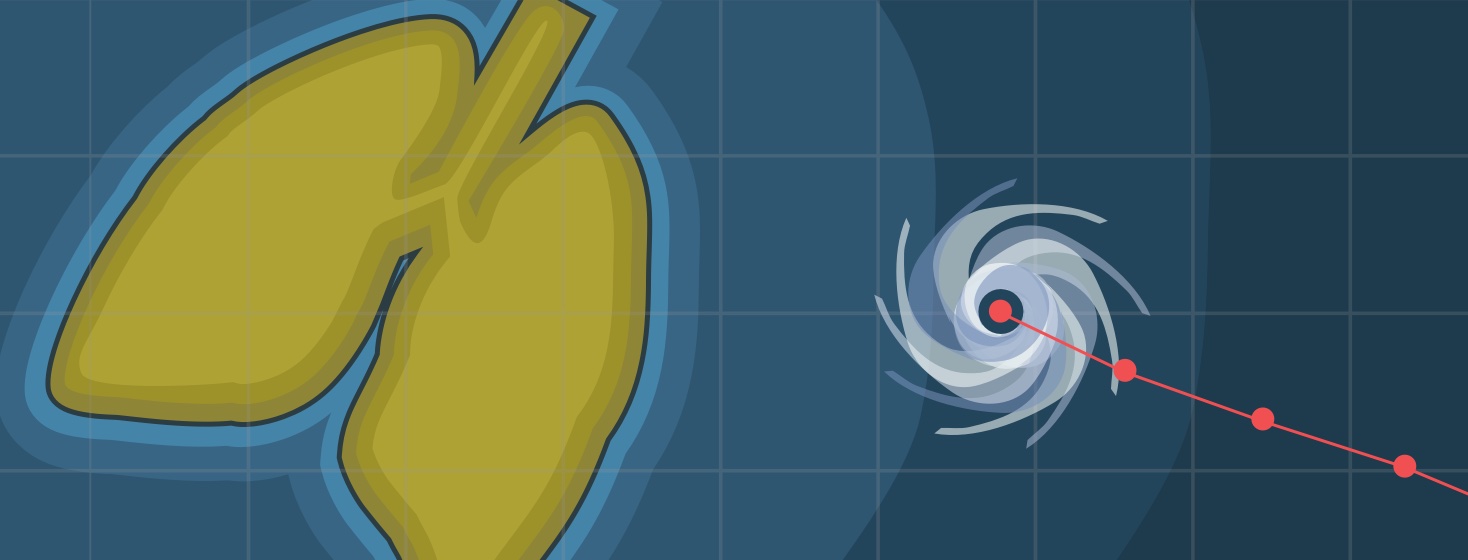Hurricanes and Asthma
In 2020, records are being set during this hurricane season.1 Tropical storms and hurricanes are named from “A-Z”, with the most recent tropical storm being named “Gonzalo”. Hurricane season starts at the beginning of June, and this is the earliest in the season that we have ever experienced a "G" named hurricane (typically a "G" named tropical storm will occur around September). Tropical storm Gonzalo may turn into a hurricane, and there will be more tropical storms and potential hurricanes throughout the season.1
If you have asthma and live in a hurricane-prone area, then their certain things you should be aware of!
Preparing for a hurricane with asthma
If you live in an area prone to hurricanes, you already know that preparation is key! However, if you have asthma, there are several extra steps you should take to be hurricane ready.
During hurricane season, have at least a 3-day supply of asthma medications at all times. Keep your insurance card and asthma action plan (if you have one) in a waterproof bag. It is very common for the power to go out during a hurricane, so keep this in mind if you use a home nebulizer that requires being plugged into an electrical outlet. Also, this will shut off the A/C, increasing heat in your home. You may want to consider purchasing a portable nebulizer or generator.2
Know who to turn to for help
Hurricanes can be devastating, and luckily there are resources that are there to help provide necessary medications during emergencies. Here are two to be aware of:
Emergency Prescription Assistance Program: Allows people without insurance to receive medications in emergency situations.
Medicare: For those covered under Medicare, this link shares how to obtain medication during an emergency or natural disaster
Asthma triggers from a hurricane
Strong emotions
Fear, anxiety, stress, panic, and despair are all strong emotions that may be felt before, during, and after a hurricane. Strong emotions like these listed are potential asthma triggers for some.3 If you know that these are triggers for you, be aware of how to deal with this trigger when it arises. In an emergency situation like a hurricane, know what asthma medication you should take or what management technique will help you best.
Mold
If flooding has occurred in your home, it is safe to make the assumption that mold is already growing or will grow. Mold is certainly an asthma trigger, so this is something to be very cautious of.4
As soon as you are back in your home, open all of the doors and windows in an attempt to dry out your home. If items in your home have molded, and cannot be dried out and cleaned, it must be thrown out. Wear a mask and gloves while throwing these items out. If there is a lot of mold within your home, hire someone to professionally clean since mold can be a serious hazard for asthma.4
Pollen and temperature
A hurricane is a massive storm that has incredibly fast wind speeds. Hurricane winds can exacerbate asthma by stirring up pollen and other allergens. Heavy rainfall can also release pollen into the air. Since hurricane season starts in summer, the formation of a hurricane can further amplify warm, moist, humid air. All of these things are common asthma triggers that should be taken into consideration.5
Remember...
Natural disasters like hurricanes are something we have little control over, so the best we can do is be prepared. If you have asthma, it is important to have a supply of asthma medication in your home during hurricane season. Knowing your triggers and what medications to use are important steps in managing asthma, but this is also vital information to know if a natural disaster were to hit.
Do you live somewhere were hurricanes occur? If so, what has been your experience with hurricanes and asthma?

Join the conversation